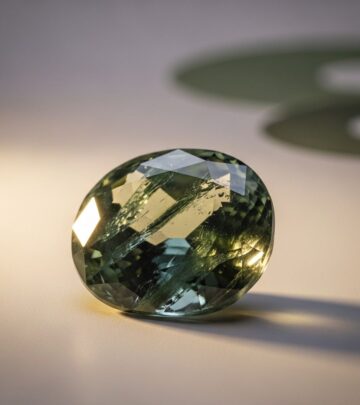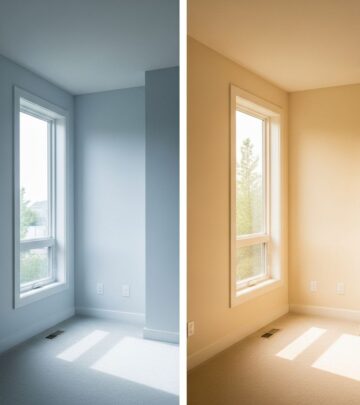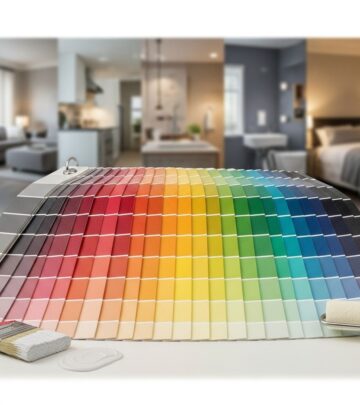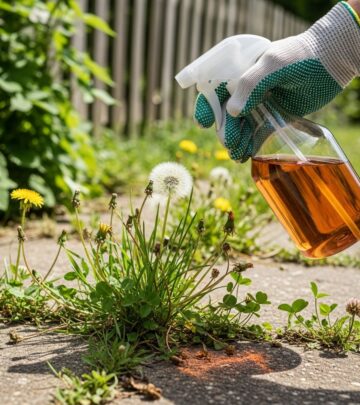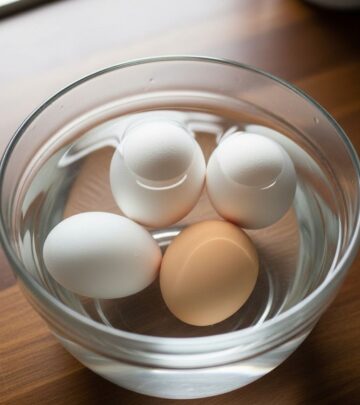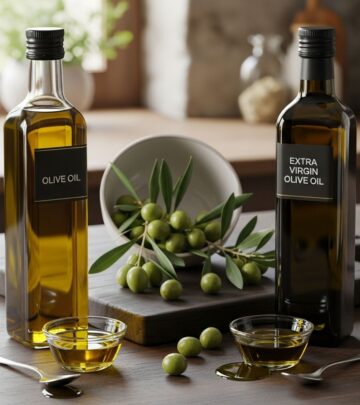Homemade Cleaners: The Essential Guide to Natural Cleaning Solutions
Turn pantry staples into effective, eco-friendly cleaning solutions for your entire home.
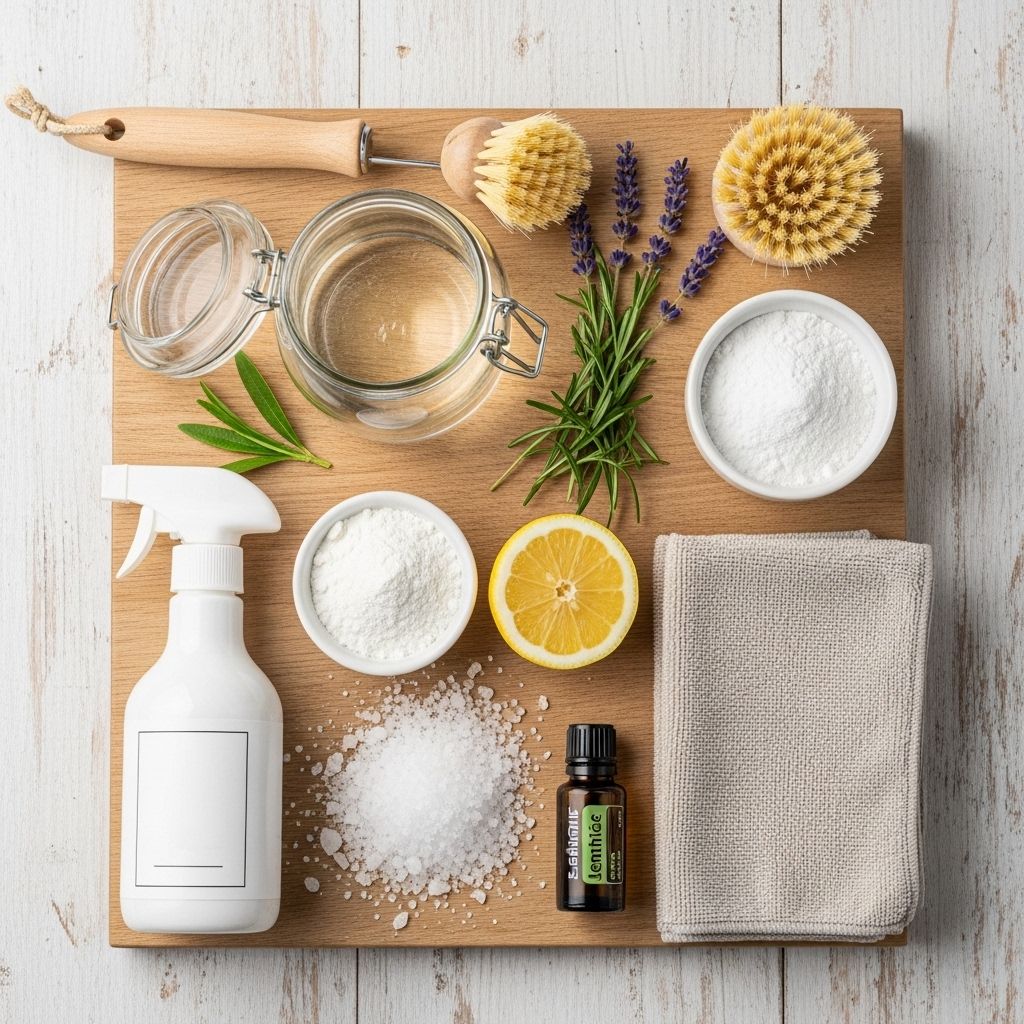
Making your own cleaning solutions is an effective, affordable, and environmentally friendly alternative to harsh store-bought chemical products. By harnessing common household staples like white vinegar, baking soda, salt, Borax, lemon, and essential oils, you can create powerful DIY cleaners for every surface and every room. This guide provides a detailed breakdown of homemade cleaning options, recipes for common household tasks, and tips for maximizing effectiveness while minimizing environmental impact.
Why Switch to Homemade Cleaners?
- Healthier Home: Homemade cleaners reduce exposure to potentially toxic chemicals found in many commercial products.
- Cost Savings: Pantry staples are far less expensive than specialty cleaning formulas.
- Eco-Friendly: Most recipes use biodegradable, non-toxic ingredients safe for home and planet.
- Customizable: Adjust scents, strengths, and ingredients to suit your preferences and needs.
Essential Ingredients for Natural Cleaning
The following ingredients form the backbone of most natural cleaner recipes. Keep these on hand for DIY cleaning solutions:
- White Vinegar: An effective natural disinfectant, degreaser, and deodorizer.
- Baking Soda (Bicarb): Mild abrasive and deodorizer; perfect for scrubbing.
- Salt: Natural abrasive for scouring.
- Borax: Boosts cleaning power for detergents and scouring powders.
- Lemon and Lemon Juice: Acidic and naturally antibacterial, leaves surfaces gleaming.
- Essential Oils (Tea Tree, Lavender, Eucalyptus, Lemon): Add scent and extra antimicrobial properties.
- Liquid Castile Soap or Eco-friendly Liquid Laundry Soap: Gentle but effective cleaning agent.
Homemade All-Purpose Cleaner
A versatile spray for counters, sinks, and most hard surfaces (*avoid using vinegar on natural stone, granite, or marble*).
- 1/2 cup white vinegar
- 2 tablespoons baking soda
- 10 drops essential oil (tea tree, lavender, or lemon)
- Water, to fill a 12 oz bottle
Mix vinegar, essential oil, and a little water in a glass spray bottle. Carefully add baking soda. Fill the bottle with water and shake gently. Spray directly on surfaces, wipe clean with a cloth, and allow to air dry.
DIY Soft-Scrub Cleaner for Kitchens
Great for sinks, stovetops, and any area that needs gentle abrasion.
- 1 ½ cups baking soda
- ½ cup eco-friendly liquid laundry soap or castile soap
- 10 drops essential oil (tea tree, lavender, or lemon)
Stir all ingredients vigorously until a paste forms. Store in airtight container. If it dries out, add a little water and remix.
Homemade Disinfectant Wipes
- 1 cup water
- ¼ cup white vinegar
- 8 drops each of tea tree, eucalyptus, and lemon essential oils
- 15–20 squares of cloth (from old t-shirts or dish towels)
Mix liquids in a bowl. Stack cloth squares in a wipe container, pour solution over them. Pull out, use, and launder as needed.
Homemade Dish Soap
- ½ cup warm distilled water
- 2 teaspoons kosher salt
- ½ cup white vinegar
- ½ cup liquid castile soap
- 1 teaspoon lemon juice
- 10–15 drops lemon essential oil (optional)
Dissolve salt in warm water. Combine vinegar, soap, and lemon juice in a separate bowl, then add to salt water. Stir until thickened, add optional essential oil, and store in a recycled container.
Homemade Dishwasher Detergent
- 1 cup salt
- 2 cups baking soda
- 2 cups Borax
- 1 cup Lemi-Shine (or citric acid powder)
Mix ingredients and store in airtight container. Use 2 tablespoons per load. Use white vinegar in the rinse agent compartment for best results.
Natural Glass Cleaner Recipe
- 2 cups distilled water
- 2 tablespoons white vinegar
Combine in a spray bottle. Spray onto glass and wipe clean with microfiber cloth or paper towels for streak-free shine.
Easy Homemade Drain Cleaner
- 1 cup baking soda
- Kettle full of boiling water
Pour baking soda down the blocked or odorous drain, followed by boiling water. Repeat as needed for stubborn clogs.
Cast Iron Pan Cleaner
- Olive oil
- Coarse salt
For stubborn, baked-on food, sprinkle salt in the pan, add a dab of olive oil, and scrub with a dishbrush. Rinse, dry, and apply a thin coat of oil to prevent rust.
Natural Floor Cleaner
- Bucket of boiling water
- ½ cup white vinegar
- ½ cup vodka (optional for disinfecting and rapid drying)
- 1 teaspoon eucalyptus or peppermint essential oil
Mix in a mop bucket, mop floors as usual.
Stainless Steel Cleaner
- White vinegar
- Olive oil
Spray vinegar on stainless surfaces, wipe dirt away. Buff with a tiny amount of olive oil for shine and a streak-free finish.
DIY Toilet Bowl Cleaner
- ½ cup baking soda
- ½ cup white vinegar
Sprinkle baking soda into toilet bowl, pour in vinegar, let fizz, scrub, and flush.
Homemade Oven Cleaner
- ½ cup baking soda
- 2–3 tablespoons water
- White vinegar (as needed for rinsing and foaming)
Mix baking soda and water to spreadable paste. Cover oven interior and let sit overnight. Spray vinegar in the morning, wipe clean. Repeat for tough spots.
Natural Scouring Powder
- 2 cups baking soda
- 1 cup salt
- 1 cup Borax
Mix and use to remove soap scum and hard water stains from tubs and showers. Apply powder, scrub, and rinse.
BBQ Cleaner
- 2 lemon halves
- Salt
Heat barbecue grill, use tongs to rub lemon halves dipped in salt over the surface. The acidity of lemon and abrasive salt removes grease and grime. For extra cleaning, steam a bowl of water inside the closed grill, then wipe with lemon or brush after it cools.
Safe and Effective Homemade Cleaner Tips
- Label All Bottles: Avoid mix-ups by clearly labeling every DIY solution.
- Patch Test First: Especially with stone, wood, or painted surfaces.
- Avoid Mixing Strong Acids and Bases: Do not mix vinegar with bleach or ammonia—it releases toxic gas.
- Ventilate Well: Natural cleaners still require proper ventilation.
- Store Properly: Keep homemade cleaners in air-tight containers, out of reach of children or pets.
Comparison Table: Common Homemade Cleaner Ingredients and Their Uses
| Ingredient | Main Uses | Special Precautions |
|---|---|---|
| Baking Soda | Scrubbing, deodorizing drains, scouring powders, soft-scrub | Safe on most surfaces |
| White Vinegar | Disinfecting, dissolving mineral deposits, glass/steel cleaner | Avoid on stone, granite, marble |
| Lemon (Juice or Essential Oil) | Deodorizing, degreasing, natural antibacterial | May bleach fabrics |
| Borax | Laundry booster, scouring powder ingredient | Use sparingly, rinse well |
| Salt | Abrasive scrubbing, BBQ cleaner, scouring powder | May scratch delicate surfaces |
Frequently Asked Questions (FAQs)
Q: Are homemade cleaners safe for pets and children?
Most recipes are much safer than commercial chemicals, but it’s crucial to store all solutions securely and avoid direct contact, especially with essential oils or Borax. Patch test cleaners on surfaces your pets or children touch often.
Q: Can I use vinegar-based cleaners on all surfaces?
No. Avoid vinegar on natural stone, granite, and marble, as it can etch and remove sealant. Use only approved cleaners on these surfaces.
Q: Do homemade cleaners disinfect as well as commercial products?
Many homemade recipes are effective for general cleaning, but not all qualify as disinfectants. Adding essential oils like tea tree or using higher concentrations of vinegar can increase antimicrobial action, but they may not meet clinical disinfection standards—always follow CDC guidelines for high-risk surfaces.
Q: How long can homemade cleaners be stored?
Most solutions last up to 2–4 weeks if stored in a cool, dark place. Recipes without water, like powders, can last much longer. Discard if solution changes color, texture, or odor.
Q: Where can I find eco-friendly packaging for my homemade cleaners?
Reuse glass spray bottles, jars, or recyclable plastic containers. Label clearly and wash thoroughly between batches. Consider buying bulk raw ingredients to further minimize packaging waste.
Homemade Cleaners: Safety, Sustainability, and Next Steps
Switching to homemade cleaners not only helps protect your family and the environment—it empowers you to control exactly what you clean with. Remember the golden rules: patch test, label well, ventilate, and never mix strong acids (like vinegar or lemon) with strong bases or bleach. Natural cleaning can be tailored to every room and every need, often using ingredients already in your pantry. For deeper cleaning, consider alternating with eco-certified commercial products, especially on surfaces like stone or when high-level disinfection is required.
References
- https://keeperofthehome.org/homemade-all-natural-cleaning-recipes/
- https://www.homestolove.com.au/lifestyle/the-only-7-natural-cleaning-recipes-youll-ever-need-12377/
- https://www.bhgre.com/bhgrelife/eco-friendly-cleaning-products/
- https://www.bhgre.com/bhgrelife/how-to-clean-your-home/
- https://www.youtube.com/watch?v=KhxmcHoUOl0
Read full bio of medha deb

